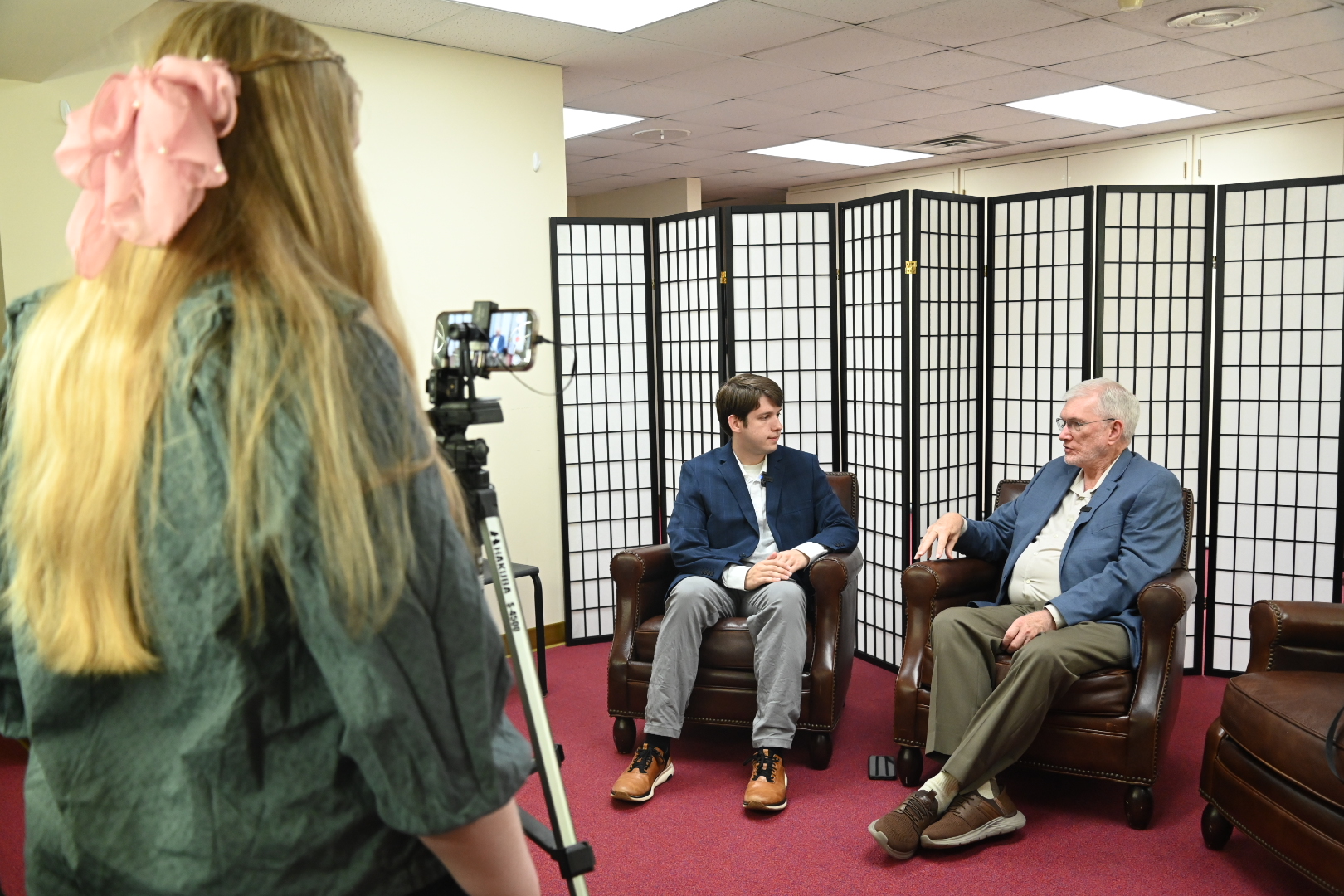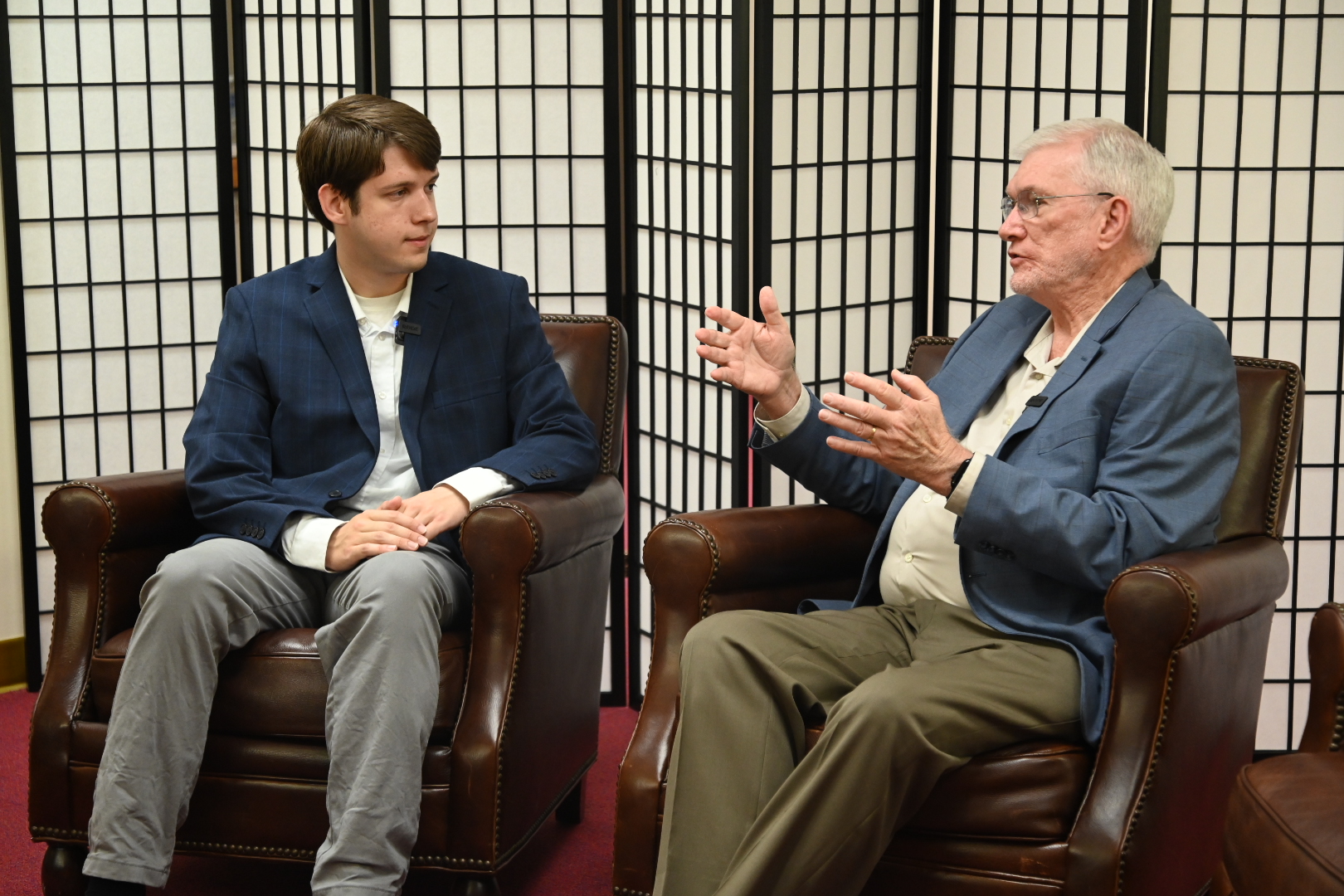
Tessa Bonnema
Collegian Reporter Zachary Edmondson interviews Ken Ham on April 14.
This week, Bob Jones University hosted the Living in Babylon Tour. Answers in Genesis has presented the tour in both Australia and the United States with a goal to educate Christians on how to present the gospel of Christ to nonbelievers in a post-Christian America.
Ken Ham, Founder CEO of Answers in Genesis, spoke Monday during chapel at BJU prior to leading the evening’s public event. He and Dr. Strachan each spoke Monday evening in Founders Memorial Amphitorium, and Dr. Strachan was set to speak to students during Tuesday’s chapel.
Ham discussed how modern America has lost its biblical foundation. There was a time when Judeo-Christian thinking dominated western culture, and most Americans were familiar with Biblical concepts and ideas. However, Ham said that western culture today resembles that of ancient Babylon, a world dominated by immorality and paganism.

“As Christians, when you go and tell people, ‘Trust in Jesus, He died for your sins,’ you’re assuming they know who Jesus is,” Ham said. “You’re assuming they know what sin is, right? … But we live in a culture like Babylon in that they don’t have a trust in God’s Word. They don’t even know that.”
Many have turned from Christianity to moral relativism, the belief that only they can decide what is right or wrong for them. Ham attributed this breakdown to the churches failing to educate their children in a Christian worldview, by trying to reinterpret the Bible—specifically the first eleven chapters of the book of Genesis—through the evolutionary ideas they were being taught in school.
“And as those generations realized, if you can’t trust the first book of the Bible you can’t trust anything else,” Ham said.

Most people do not have a Biblical worldview, which means they don’t understand why they need a savior like Jesus to take away their sin—the crux of the gospel, Ham said. Christians will often argue with them over issues like abortion and gay marriage, but rarely do they challenge the heart of their beliefs. This, according to Ham, is a mistake.
“How do you get someone to change their worldview from the secular worldview of moral relativism? They actually have to change their foundation in regard to where their worldview is from,” Ham said. “They’ve got to change it from man’s word to God’s Word.”
Ham said that we need to raise up generations of Christians to think foundationally, equipping them with answers to secular challenges to the Bible. And they can’t assume that people will understand biblical ideas—they must be ready to explain why they believe what they believe.
“You can’t change a culture from the top down, it’s got to change from the foundation,” Ham said “It’s a heart issue—that’s what it is.”